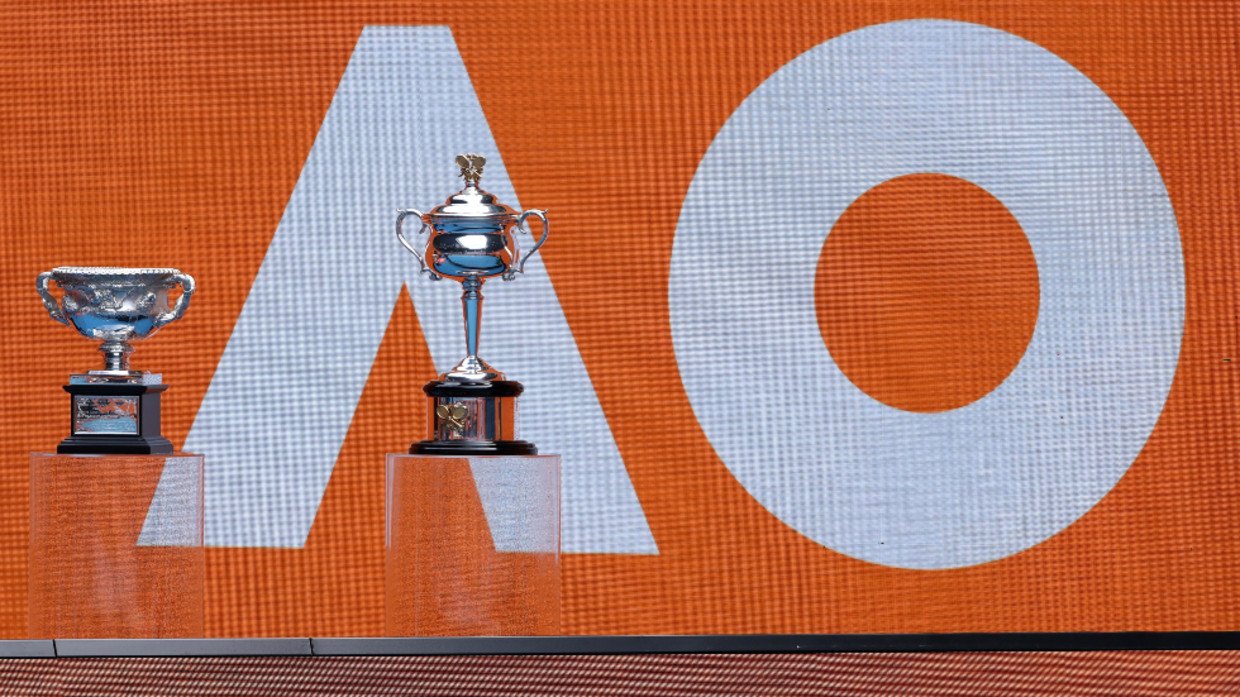Fans of Novak Djokovic have been handed a glimmer of hope ahead of January's Australian Open after the boss of the tournament suggested the door may be opened to a small number of unvaccinated players.
World number one Djokovic, who has so far refused to reveal his Covid vaccination status, has generally been considered among a cohort of the sport's top stars who may be forced to miss out on the first Grand Slam event of 2022.
The Serb, who would be in line to win his fourth successive title in Melbourne and break the all-time Grand Slam record with 21 wins, had been thought to be in danger of being excluded from the tournament amid harsh guidelines designed to mitigate the spread of the virus within Australia's borders.
Tennis Australia chief Craig Tiley has now raised the possibility of some unvaccinated players being allowed to participate.
"Everyone who is coming in is vaccinated and there will be a small percentage – a very small percentage – that will have a medical exemption," Tiley told the Australian Associated Press, adding that Djokovic has told him he wants to play at the event.
"So if any player, fan [or] workforce is on site here, you’re either vaccinated or you have a medical exemption that’s approved and you’re on the Australian Immunisation Register. That provides us with safety and an extra level of comfort on site."
Tiley also explained that an independent panel of doctors and immunology specialists would review any potential requests for medical exemptions.
Elaborating further on Djokovic, Tiley said he had discussed the matter with the 33-year-old over the weekend, but that confidentiality agreements prohibited him from about his vaccination status or any request he had made for a medical exemption.
Djokovic has remained steadfast in not revealing his status, even after officials in Victoria – whose reach extends to Melbourne where the tournament takes place – ruled that only fully vaccinated players and their entourages need apply.
"If Novak shows up at the Australian Open, he’ll either be vaccinated or he’ll have a medical exemption,” Tiley said.
"[It’s] his choice on his medical condition; it’s his choice to keep personal and private, like all of us would do with any condition we may or may not have. We are not going to force him or ask him to disclose that.
"We want to have the best players here. I'd love to have Novak here. If he meets those conditions, then great. If not, it's disappointing.
"Medically, he doesn't talk to anyone about it. I'm not going to ask Novak that – it's none of my business. [If he is here], I will know that he fulfils one of those conditions."
The will-he-won't-he debate surrounding Djokovic saw another recent development when he was including in Serbia's list of competitors for the ATP Cup which starts in Sydney on January 1 – an event which would also require him to be vaccinated.
In a further hint about Djokovic's potential eligibility, his father, Srdjan, appeared to suggest that his son had not yet been jabbed – and that the Australian Open organizers had a decision to make.
"They have to decide whether they will let Novak in," he said on Serbian television. "If they decide to [not let him in], they have to stand by their decision. He has won the Australian Open nine times, he now wants to play – but they have to permit him to play. Novak will do what he thinks is best for him, nobody will impose an opinion on him.
"What to do if he ends up not going? We will wait for [the French Open in May] and his 21st Grand Slam title.
"He will win a few more Grand Slam titles [before] he retires, I think four or five.
"He will win at least twice at Wimbledon and some other slams, for sure. Do you doubt that? You don't need to be an expert but Novak will play for another two to three years and this will be enough."

